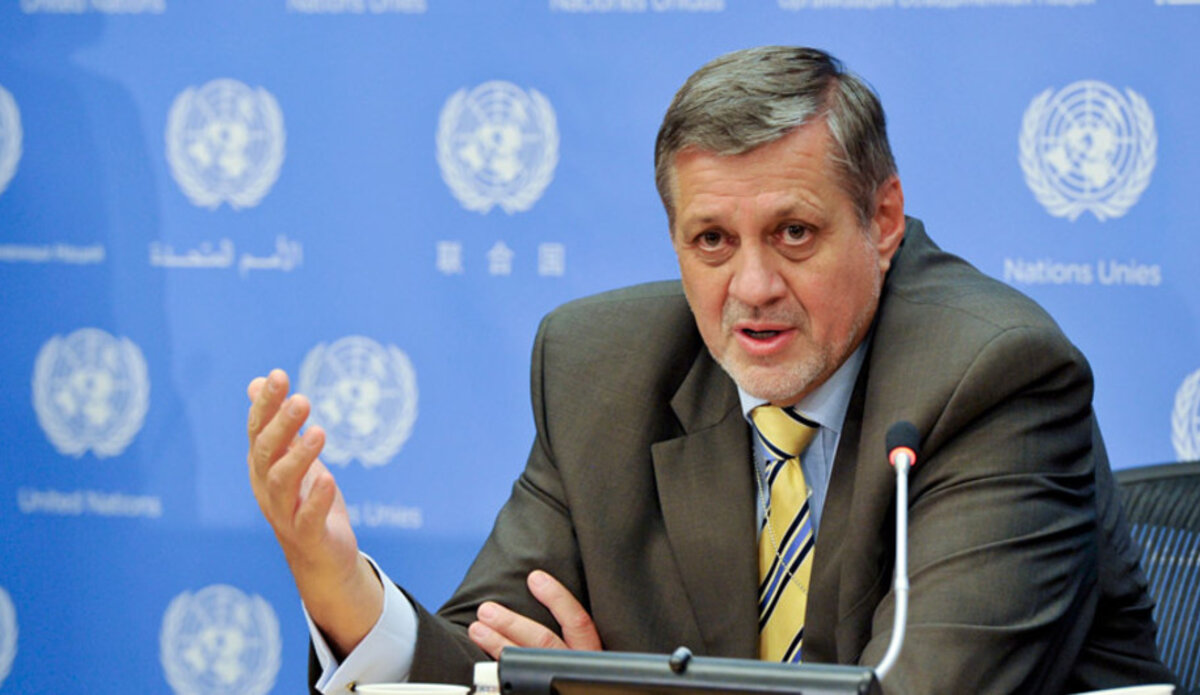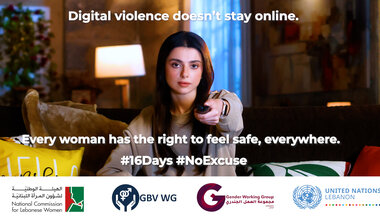Interview of UN Special Coordinator for Lebanon Ján Kubiš with France 24
Interview of UN Special Coordinator for Lebanon Ján Kubiš with France 24
13 August 2020
Beirut, Lebanon
France 24: What are the consequences of the Beirut Port explosion?
SCL Ján Kubiš: The consequences are terrible. First of all it is about human beings. You know well that there were over 170 people killed, over 6000 people injured. A lot of traumatized people with psycho-social problems and they will remember this trauma forever, for their life. It shattered neighborhoods all around Beirut and it was even felt in places like Cyprus, like an earthquake or something like this. Of course, these are physical and mental traumas but it created also another issue. People became extremely angry with their leaders, with the authorities that allowed situations like this to happen, that allowed situations that eventually indeed created such a massacre of the people and destruction of property, of their livelihoods.
France24: Have you established a specific mechanism for the distribution of humanitarian aid in the country?
SCL Ján Kubiš: I have to say I am very proud that the United Nations from the first hours of this catastrophe stepped in, stepped up to the challenge. We have some stock of goods, of food, of medicine, of healthcare packages and we immediately started to distribute it to those who need it. We approached the authorities, but we approached also the society, we approached NGOs, we mobilized all of our resources. And in the meantime, we started organizing ourselves. Within hours, we had rescue teams on the ground. Within hours we had other experts who were assessing the damage at least in the initial assessment and immediately prepared requests for providing the necessary goods, providing food. Within hours, for example, we provided 17,500 metric tons of flour because as you might know the wheat silos were destroyed in the port of Beirut and we did not want to exacerbate the food insecurity as such. That was just the immediate response. Thousands of trauma kits, thousands of surgical kits, all of that came immediately. But in the meantime, we have triggered all of our mechanism to coordinate also with the donors. For example, within several days, WFP (World Food Programme) prepared 150 thousand food parcels. We reached out to the needed population. Now, we are collecting information to assess the damages and to start the basic repairs of the basic infrastructure because as you know, some 50,000 households were damaged in this blast.
France24: Is the assistance limited to medical and humanitarian assistance or is there also financial aid delivered to the population?.
SCL Ján Kubiš: I have to say that also financial aid was pledged. I am very grateful to France and to President Macron, who together with the UN Secretary-General, co-hosted an important international conference last Sunday that generated pledges of immediate humanitarian assistance to Beirut, to the people, of up to 300 million US dollars. There are also some financial pledges and I can confirm that indeed through the UN channels we received already some alive money if you wish that is being used to provide assistance directly to the people, through the UN channels.
France24: Are you collaborating with other Lebanese and international organizations?
SCL Ján Kubiš: Absolutely we cooperate with different groups of people, with the beneficiaries. We cooperate with local Lebanese and international NGOs, they are our traditional partners. We are getting more and more calls from different groups of the society that organize the needed individuals and would like to link with us and other donors and to coordinate provision of this assistance. As I said, of course we keep contact and consult with the government but we work in a way to provide this assistance directly to the people using these kind of channels, using local groups, local NGOs, international NGOs.
France24: Do you consider the explosion at the Beirut Port is an accident or an attack?
SCL Ján Kubiš: I will not speculate. As you know, the authorities immediately started their own investigation. If I am not wrong, I noticed that some international expertise was offered and I assume also partly accepted. There are many international parties that are offering their experts that would help with this investigation that should be indeed independent and transparent because unfortunately people here in Lebanon they don’t trust their authorities and they would like to see a guarantee through perhaps this kind of international expertise, that the finding of the investigation are reflecting the reality of what happened.
France24: Some Lebanese media are claiming that the UN was aware of the fact that the Ammonium Nitrate was stored at the Port for several years. Were you indeed aware of that and if so, why did you not take any practical step to get rid of these chemicals?
SCL Ján Kubiš: I don’t know who is spreading these malicious lies and fake news. We are not the authorities of the country, we do not operate the Port. It was the authorities, different parts of the authorities, that were aware. You are aware, whether it is true, that there were many letters, many appeals from different parts of the authorities to their higher instances to deal with the situation. But the UN has nothing to do with this. So, I would like very firmly to reject this kind of false news that are basically trying to deflect the attention from where is the real problem.
France24: Are you updated on the investigation, are you taking part in it?
SCL Ján Kubiš: At this point in time of time, the United Nations has not been asked to provide any expertise or assistance. But I have no doubt that in case of need and request we would be able and ready and willing to provide expert assistance.
France24: How do explain the position of some Lebanese who reject an international probe?
SCL Ján Kubiš: You know that in usual cases every investigation of this kind, every such commission as such is established usually with the consent of the host country because it requires cooperation of the host country. But I would not go any farther than that. This question must be asked of the authorities of Lebanon.
France24: Today, there is a caretaker government in Lebanon. What are your views on the future government in Lebanon?
SCL Ján Kubiš: My take is only one, my appeal is only one. There is a need not to have any vacuum. According to the Constitution of Lebanon, a caretaker government can do indeed some basic management of things but has no chance and right to initiate reforms or major steps of massive impact on the future of the country. So basically, it is a caretaker, almost a vacuum. My appeal to the authorities, to the political leaders, to the Constitutional leaders, is to create a new government as soon as possible without any delay but not just a government. That would not be enough. It must be a government that would be accepted by the people, that would be willing to address the needs, aspirations, requirements, angsts, anxiety of the people, that will break with the corrupt practices of the past, a government that will not only commit itself to pursue very much needed and deep systemic, structural reforms but will implement them and will have a political space and support in the Parliament to implement them and in the broader political strata of Lebanon. So yes, very quickly there is a need to create a government but as I said, not just a government, it cannot be a repetition of some previous experiences when all the goodwill and hard work of individual ministers led to nothing because the government had no political space .
France24: Ján Kubiš, the UN Special Coordinator for Lebanon, thank you very much.
 UN
UN





